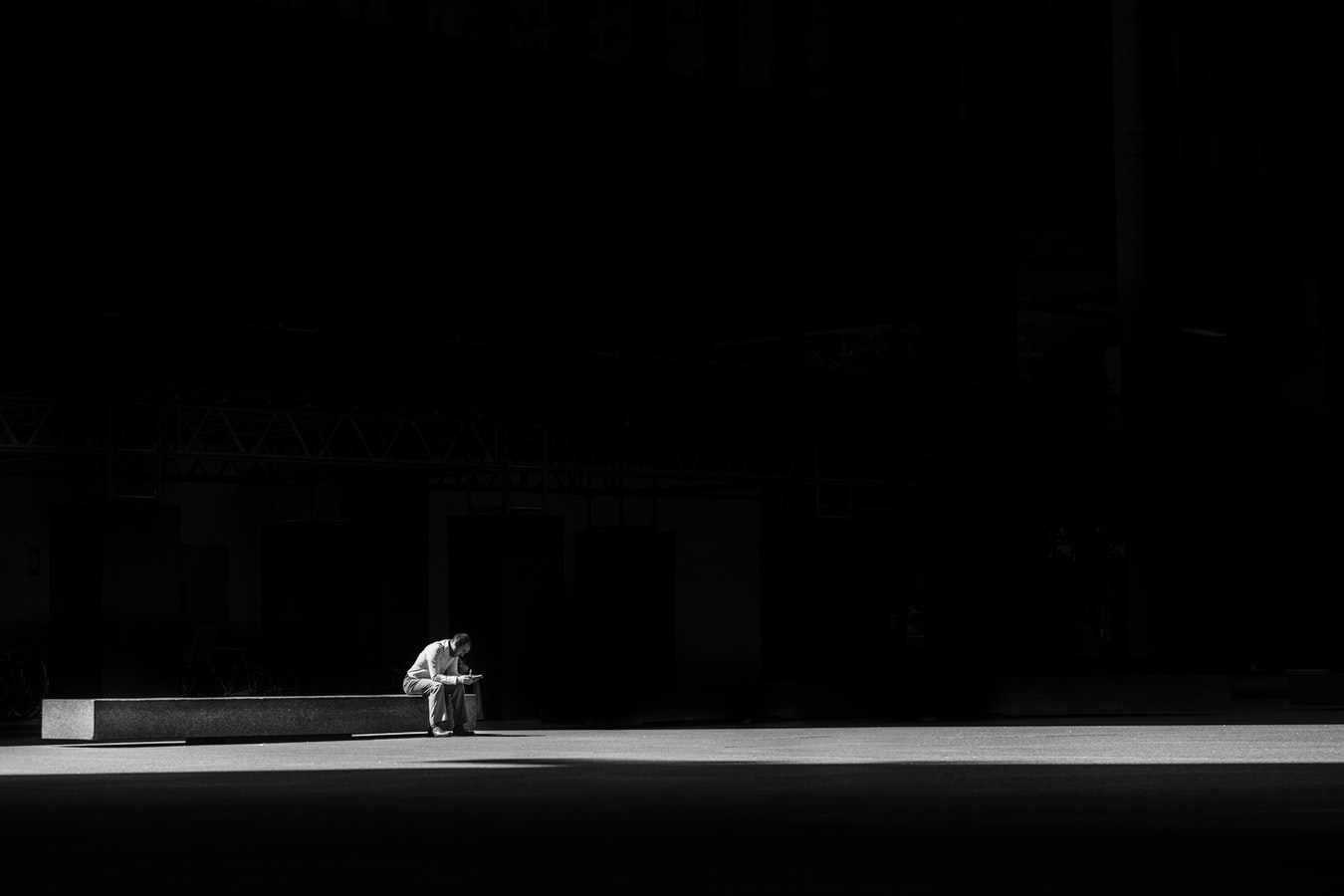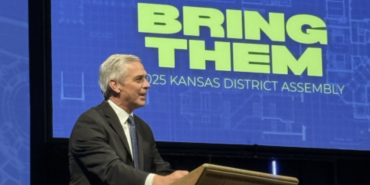They Drove Me Out of Their Minds

Samba sat in the middle of the circle, feeling every eye fixed on him. Some in his family watched with disgust, others with unbelief, and some seethed with anger. For the last time, his father asked him: "Are you going to renounce that faith?" Silently, he raised his head and looked at his family. "No, I cannot renounce the Truth."
Born to a Muslim family in West Africa, Samba journeyed on a long search for Truth before he decided to follow Christ. In most countries with a Muslim majority, such a decision means a death penalty at worst and banishment from the community at best. Samba's family reacted to his decision by calling a family meeting to urge him to renounce his faith. His father, uncles, brothers, and the imam1 of the community attended.The imam quoted the Qu'ran as he described to Samba the fate of Muslims who renounced their faith.
The imam described horrible scenes of hell as he compelled Samba to come back to his senses. Then his father reminded him of their family tree and their roots, several generations deep, in Islam. He told Samba that his decision would have a spiritual and social impact on the whole family. Samba's awareness of what it meant to suffer for his faith had begun to grow.
Not many Christians understand what it means to suffer for their faith. But, in much of the world, suffering for Christ is a reality. In many countries believers can identify with the apostle Paul who wrote,
Five times I received from the Jews the forty lashes minus one. Three times I was beaten with rods, once I was stoned, three times I was shipwrecked, I spent a night and a day in the open sea, I have been constantly on the move. I have been in danger from rivers, in danger from bandits, in danger from my own countrymen, in danger from Gentiles, in danger in the city, in danger in the country, in danger at sea and in danger from false brothers. I have labored and toiled and have often gone without sleep, I have known hunger and thirst and have often gone without food, I have been cold and naked (2 Corinthians 11:24-27).
When Samba looked into the faces of his family members and told them he would not renounce his faith in Christ they were shocked and shouted "Astafoulah!" or "Allah forbids!" As Samba related this story, his pastor asked him the question that is always asked to Muslim background believers (MBB): "Did they drive you out of your father's house?"
"No," Samba replied. "They didn't drive me out of the house, but they drove me out of their minds."
Some things are worse than martyrdom. Often Muslims who come to Christ are banned from their families and become pariahs. They move away from their communities and try to rebuild their lives.
"Driving someone out of one's mind" is not physical suffering, it is worse. The believer becomes invisible to his or her own people. Samba was treated like a "leper" in his own home. During family events people would not even greet or speak to him. In a community oriented society this is perhaps the most difficult form of persecution. Social ostracism brings depression as well as profound self-hatred and questioning. Many MBBs return to their former faith because of their need for acceptance.
How should we as Christian brothers and sisters respond to the suffering we hear about? Should we seek ways to shelter people like Samba by opening our doors to them and giving them a safe place to live? The church in West Africa has decided that this is a wrong response. They understand that gold is refined in the furnace. Samba, and others like him, have identified with the early disciples who "rejoiced that they were considered worthy to suffer dishonor for the sake of the name" (Acts 5:41, NRSV).
Samba knew that every time he was ignored, rejected, ostracized, insulted, falsely accused, and cursed, he was becoming more like his Master. The church helped him by praying, providing brotherly support, and sharing wisdom from lessons learned by others in the same situation. A ministry of encouragement is the most helpful response to those who are suffering in this way.
Life was not easy, but Samba persevered. His family watched in silence, but they watched. Eventually the father, touched by his son's perseverance, officially integrated Samba back into the family. Today three of Samba's siblings are also disciples of Christ.
Suffering is not something we seek. Nor is it something that we wish upon anyone. But neither is it something to fear, for God always provides strength and grace to those who suffer for the gospel.
Meanwhile, we respond by praying for the suffering church around the world, that God will give them strength and provide for their needs. And then, when God gives us the opportunity to interact with those who suffer because of their faith, we offer them a word of encouragement and a hand to lift them up.
As the Church of Jesus Christ, we accept that some people will suffer for the sake of the gospel. Paul, in writing to the New Testament church, calls suffering a privilege that produces endurance (Philippians 1:29), character, and a hope that does not disappoint (Romans 5:3-5). When we are called to suffer for the gospel we know that we are following the path of Christ himself.
When you see believers in pain from their faith, look for a way to support and encourage those who are privileged to suffer for the gospel.
1. The Imam: A Muslim religious leader and teacher of the Koran.
Daniel Gomis is pastor of the Church of the Nazarene in Dakar, Senegal, and French literature coordinator for West Africa. He also commutes back and forth to Nazarene Theological Seminary in Kansas City to complete his Master of Divinity degree.
Steve Doerr worked for the Department of World Mission for 25 years, first as a missionary to Africa and later as director of World Mission Literature (now Nazarene Global Publications). He now lives in Orlando, Florida, where he works with Wycliffe Bible Translators.
Please note: all facts, figures, and titles were accurate to the best of our knowledge at the time of original publicaton but may have since changed.




